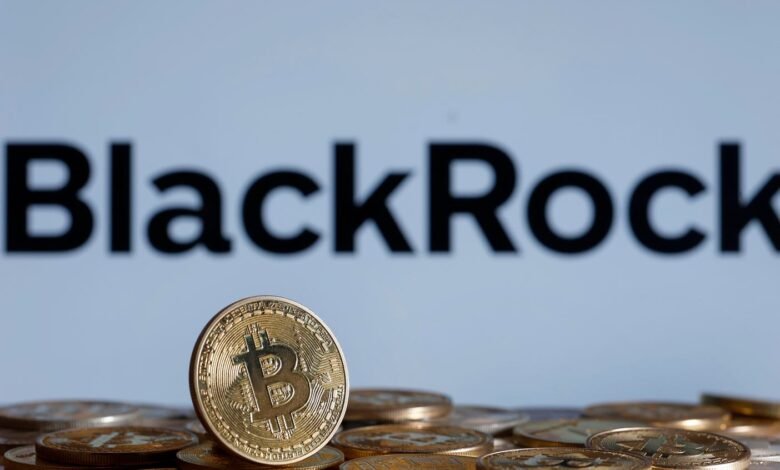Fed Triggers A Huge Bitcoin Price Pump As BlackRock Quietly Launches ‘$5 Trillion By 2030’ Game-Changer That Could Boost Ethereum, XRP And Crypto

Bitcoin has suddenly shot higher, erasing $100 billion of losses from a crypto crash that came amid fears the Biden administration could be trying to “kill” crypto.
The bitcoin price has rocketed 5%—pushing ethereum, XRPXRP and the wider crypto market higher—after the Federal Reserve’s decision to leave interest rates on hold and Fed chair Jerome Powell said he may soon be ready to begin cuts—forecasting three this year.
Before the Fed’s closely-watched announcement triggered a bitcoin price pump, the world’s largest asset manager BlackRock quietly revealed it’s already begun the second stage in its plan for a crypto-based “revolution in financial markets”—something Citi analysts predict could could become a “$5 trillion market by 2030.”
Sign up now for the free CryptoCodex—A daily five-minute newsletter for traders, investors and the crypto-curious that will get you up to date and keep you ahead of the bitcoin and crypto market bull run
Getty Images
BlackRockBLK, the world’s largest asset manager that kicked off the rush to bring a spot bitcoin exchange-traded fund (ETF) to Wall Street last year, has filed to launch a tokenized private equity fund in partnership with asset tokenization company Securitize.
BlackRock’s IBIT spot bitcoin ETF has romped to $15.5 billion in assets under management in just three months, making it among the fastest-growing ETFs of all time.
The new fund’s documentation, filed with the U.S. Securities and Exchange Commission (SEC) last week, did not specify which cryptocurrencies or assets it would hold. OndoONDO Finance, which runs a real-world assets tokenization platform, saw the price of its ondo coin rocket 40% after news of the filing broke.
A cryptocurrency called BlackRock USD institutional digital liquidity fund (buidl) was created earlier this month on the ethereum blockchain, according to Etherscan data spotted by The Block.
The fund appears to have received a transfer of $100 million on March 4. Buidl has a maximum quantity of just 100 coins and only one holder.
In January, BlackRock’s legendary founder and chief executive Larry Fink laid out this two-step plan for crypto in an interview with CNBC.
“We believe this is just the beginning. ETFs are step one in the technological revolution in the financial markets,” Fink said. “Step two is going to be the tokenization of every financial asset.”
Sign up now for CryptoCodex—A free, daily newsletter for the crypto-curious
Forbes Digital Assets
Bitcoin and crypto’s blockchain technology allows traditional assets to be “tokenized” on a public ledger, potentially making the transfer of anything from stocks, bonds, real estate and alternative investments like art, cheaper and easier.
“We have the technology to tokenize today,” Fink said. “If you had a tokenized security … the moment you buy or sell an instrument, it’s known it’s on a general ledger that is all created together. This eliminates all corruption, having a tokenized system.”
Last year, BlackRock, JPMorgan and other Wall Street giants quietly began laying the groundwork for the crypto revolution that Fink has described—something that could usher in “the next generation for markets.”
“The real game-changer for tokenized assets is their ability to make financial institutions more nimble, developing new products for new markets at a rate that would be impossible with existing technology,” Sergey Gorbunov, founder of AxelarAXL protocol and the chief executive of Interop Labs, said in emailed comments.
“The infrastructure is now in place to deliver these advantages across multiple blockchains with transparency and monitoring, as well as modular customization required for compliance on a global scale.”
Meanwhile, bitcoin and crypto adoption could be kick-started by the development of real-world assets tokenization.
“Asset tokenization is just one of many potential long-term drivers of web3 [crypto] adoption where infrastructure has matured to the point that it is possible to deliver significant advantages over legacy systems,” said Gorbunov. “You often hear that blockchain use cases have not emerged but in our view, the use cases are far ahead of the infrastructure. That is now beginning to change.”
Follow me on Twitter.





